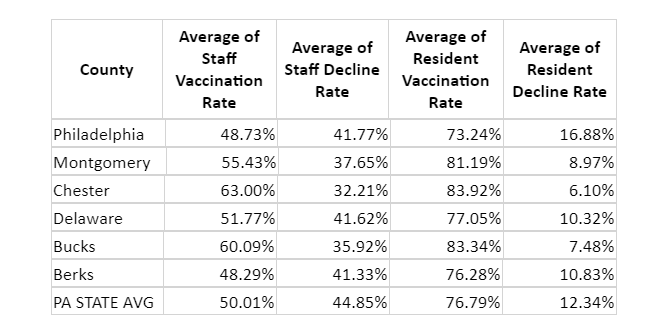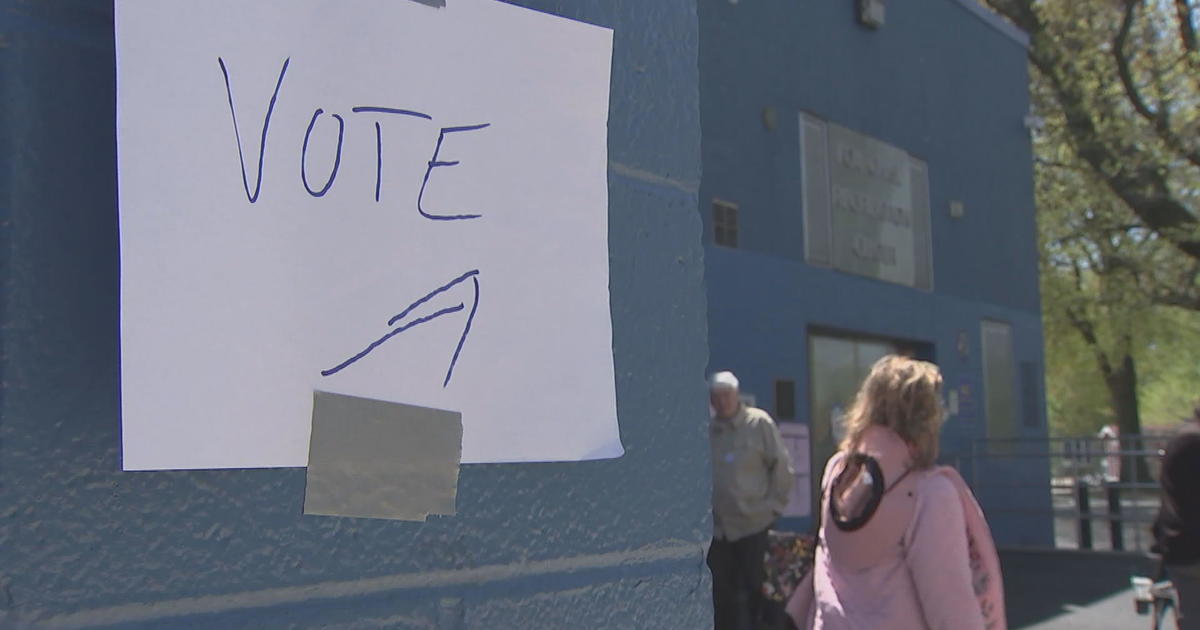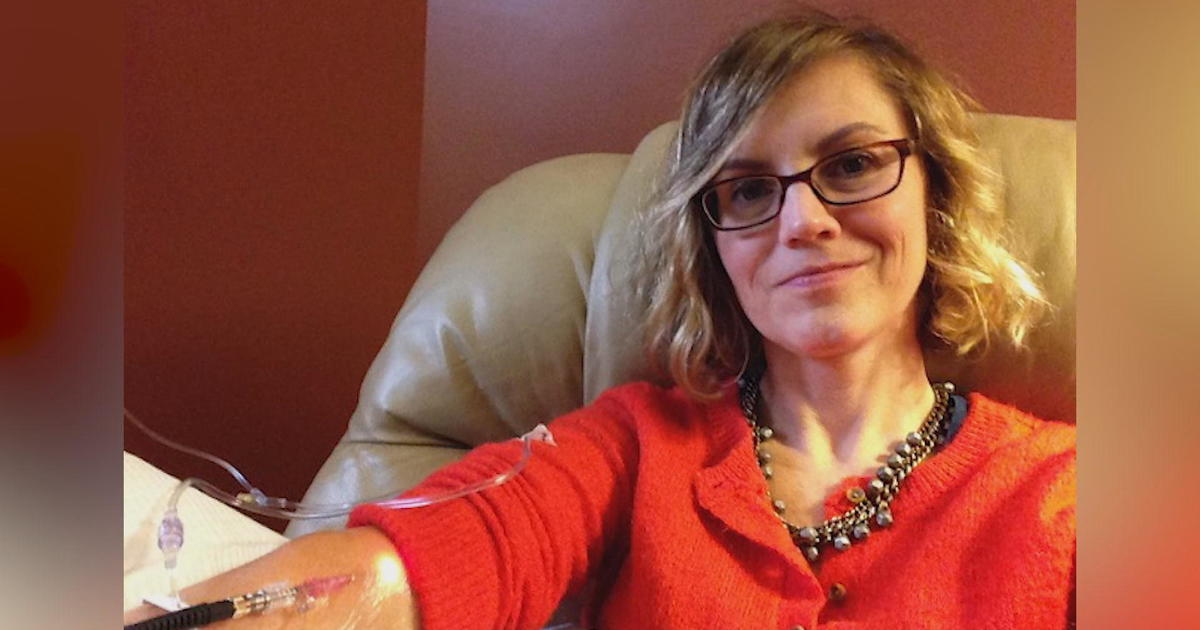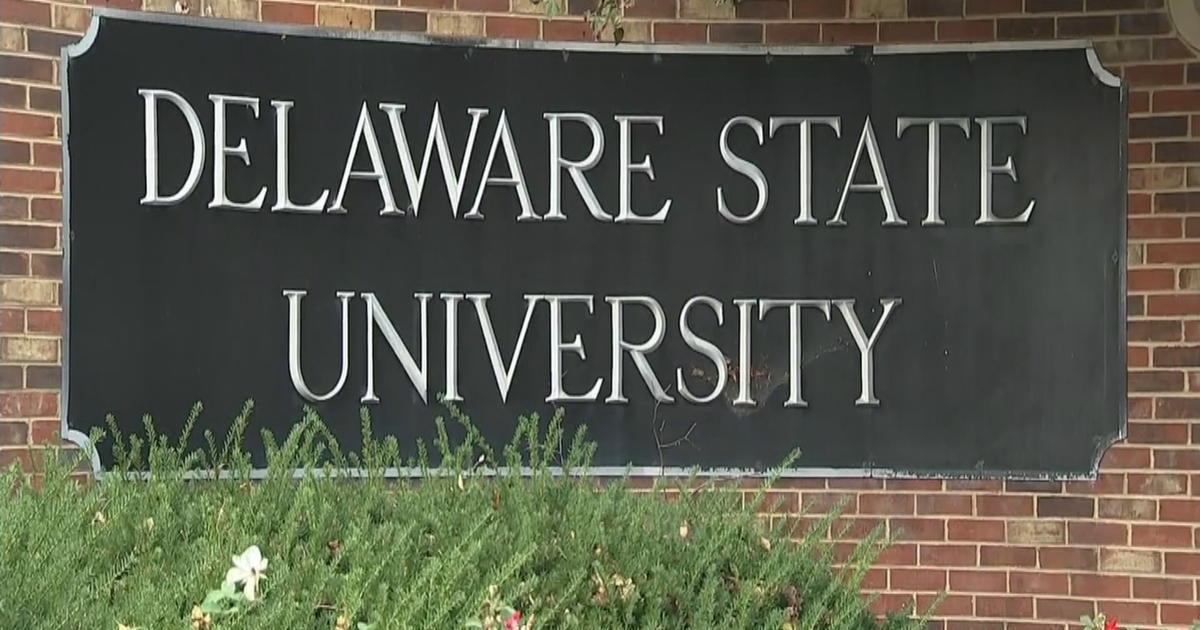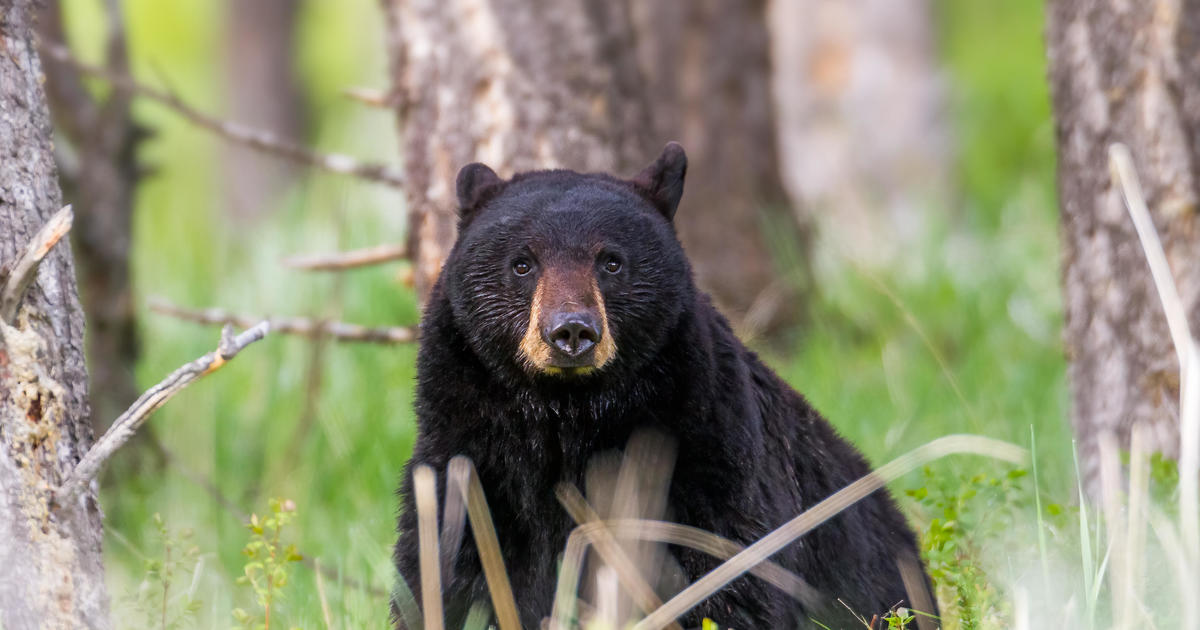Nearly Half Of Nursing Home Workers In Pennsylvania Have Declined COVID-19 Vaccine, State Data Shows
PHILADELPHIA (CBS/AP) - Nearly half of nursing home workers in Pennsylvania have declined to receive the COVID-19 vaccine, according to Pennsylvania Department of Health data. The data released Thursday shows low rates of vaccination among nursing home staff and higher rates of vaccine declined by staff, compared to residents.
Statewide, about 45% of staff declined the vaccine while only 12% of residents declined. About 50% of nursing home staff are vaccinated, even though the shots have been available to them for months, compared to 77% of residents.
In the Philadelphia region, Delaware County and Philadelphia County have the most staffed opt-out at 42%. Berks County is close behind at 41%. Chester has the most staff vaccinated at 63% and the lowest opt-out at 32%.
Meanwhile, the American Health Care Association and National Center for Assisted Living set a nationwide goal of getting 75% of nursing homes staff vaccinated by June 30.
The low uptake among nursing home workers and a growing number of unfilled appointments are early signs that vaccine hesitancy is becoming an issue in Pennsylvania. This is prompting state officials to sound the alarm and urge residents to get their COVID-19 shots as quickly as possible.
Alison Beam, the state's acting health secretary, said the fact that nearly half of Pennsylvania's nursing home workers have declined the vaccine is further evidence of "how far we have to go and how much of a challenge overcoming this vaccine hesitancy will be in the near future."
After months of demand outstripping supply, vaccines from Pfizer and Moderna are more readily available, and the Wolf administration said the challenge now is to assuage the concerns of people who are reluctant to get it.
With supplies increasing, the state expanded eligibility to everyone aged 16 and older this week. To date, Pennsylvania has vaccinated more than 40% of its eligible population, not including Philadelphia, which gets its supply directly from the federal government and runs its own program.
"It is a sign that the people who are most eager to get the vaccine have probably already been vaccinated," said Dr. Thomas Farley, the city health commissioner. Now, he said, "we will have to work harder to persuade people to be vaccinated and make it easy for them."
The reasons why some people remain hesitant tend to be similar across demographic, geographic and political groups, said state Health Department spokesperson Maggi Barton, and include "safety, efficacy and benefits for a post-vaccine world."
While the decision to get vaccinate or not remains a personal one, she said, the state is "arming our communities with vaccine facts because good information leads to good decisions."
In Yeadon, a Philadelphia suburb that's been especially hard-hit by COVID-19 and where 88% of the residents are Black, volunteers planning a weekend vaccine clinic said that access — not just hesitancy — is at play.
Black people are getting vaccinated at lower rates than white people, according to state data. But when local organizers began marketing the Yeadon clinic — and made it easy to sign up — they quickly filled all available slots.
"We took it to where the people were," said organizer Melinda Emerson of Jack and Jill of America, an organization of African-American mothers whose local chapter is sponsoring the clinic.
"There's definitely hesitancy," Emerson said, but some people "don't have internet. Somebody's grandmom doesn't know how to go online and get an appointment."
Statewide, Pennsylvania's vaccine providers have been administering more than 100,000 shots per day, with more than 4.5 million people receiving at least their initial dose.
The governor said he plans to get his first dose on Monday in York.
"The more people who get vaccinated, the safer all of us are going to be and the sooner we can get out of this," he said. "These vaccines are the way we can fight back and actually move on to the life that we'd like it to be."
State officials said Friday they're planning a print and digital media campaign to get that message out.
Following guidance from the federal government, Pennsylvania this week paused use of Johnson & Johnson's single-dose vaccine while health experts investigate reports of extremely rare blood clots.
The J&J vaccine has played a small role in the state's overall vaccine rollout to date, though the pause forced the cancellation of some vaccine clinics and affected programs targeting prison inmates and corrections officers as well as food and agricultural workers and other groups.
(© Copyright 2021 CBS Broadcasting Inc. All Rights Reserved. The Associated Press contributed to this report.)
